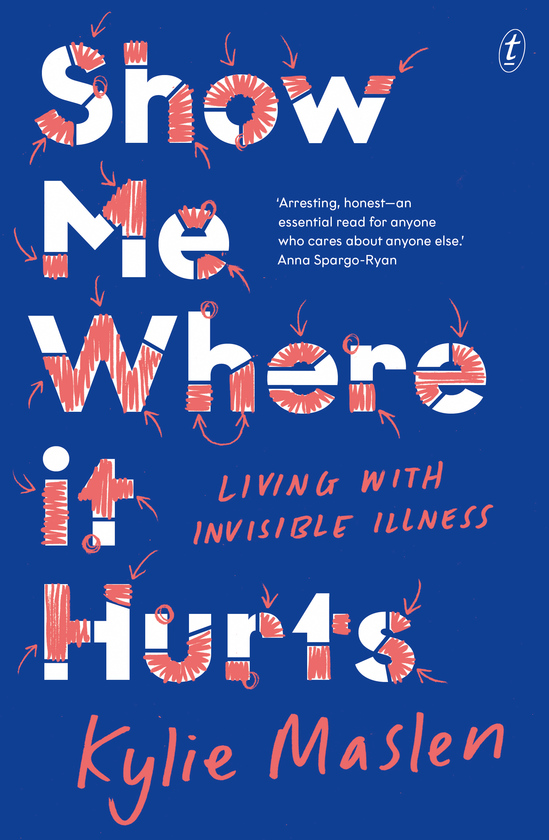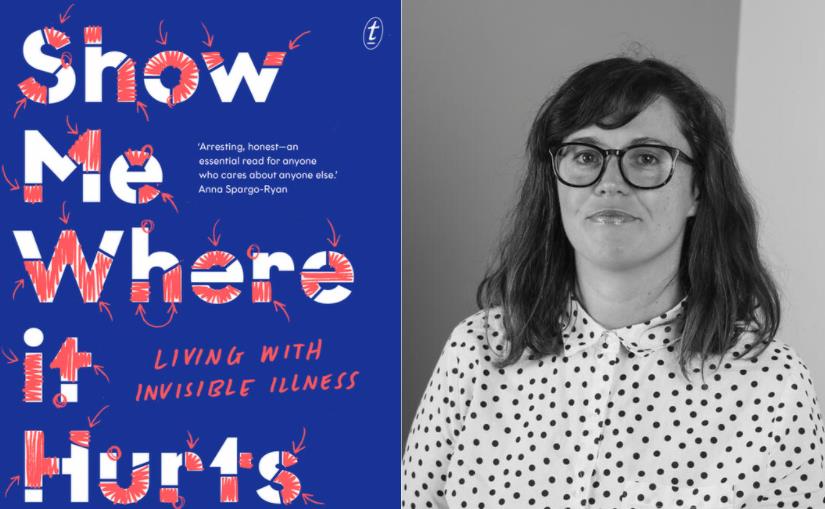Just under half of Australians live with at least one chronic condition, yet chronic illness is often a relegated subject matter, and the experience is rendered isolating as a result. The past few years have seen a much-needed boom in non-fiction writing on chronic illness and Kylie Maslen’s essay collection, Show Me Where it Hurts, is a provoking contribution to this vital oeuvre.
‘My body,’ she writes, ‘dictates who I am. I work the way I do because of my body, I vote the way I do because of my body, and I live the way I do because of my body… I might be in pain, but I am whole. I refuse to have the difficult parts cropped out.’
Maslen’s invisible illnesses took decades to be recognised by medical professionals. Her first diagnosis was endometriosis – a relatively common, painful condition that causes uterine lining tissue to grow outside of the uterus. The essays chronicle the experience of living with pain, and the evolving ways we relate to our bodies as more diagnoses and more understandings, accumulate over time. Maslen captures the reality of day-to-day living with pain and illness, and the evolving frustrations of interfacing with a medical system resistant to acknowledging and adequately treating invisible, often feminised conditions.
A point Maslen hits particularly well in her essay ‘The Fetishisation of Frida’ is that chronic illness is more than just a simple fact about a person, like what colours they like or what kind of coffee they drink. It is fundamentally enmeshed in our identities and worldviews. ‘My body,’ she writes, ‘dictates who I am. I work the way I do because of my body, I vote the way I do because of my body, and I live the way I do because of my body… I might be in pain, but I am whole. I refuse to have the difficult parts cropped out.’
Coming to an account that will be understandable to others and believed by medical professionals is challenging. Misogyny and ableism accounts for some of this challenge. So does the attempt to appear fun and unaffected, as Maslen discusses in essays about her social life and the dating world: ‘We hide our pain from the world where we can so that we can still be the friend who goes to parties, who dances, who is seen as sexually attractive and who makes people laugh.’
Maslen’s essays entwine personal reflection and storytelling with discussions of pop culture as diverse as Spongebob Squarepants, internet memes, Beyonce, and Sally Rooney. These pop cultural lenses effectively use the cultural zeitgeist to describe experiences that can be otherwise exasperatingly abstract, intangible, and invisible. Maslen shows how memes, for example, can help people describe their pain to themselves and help them forge communities with others. Beyonce’s career trajectory forms part of the way Maslen imagines her future alongside the likelihood of future flares and uncertain pitfalls.
‘That feeling of looking for answers, of not having a manual’, experiencing something without the vocabulary to express it yet, ends on a hopeful note – this book is part of a cultural movement towards telling stories that have been so neglected hitherto. The essays will be immediately relatable to the many millions of us who encounter chronic illness, and offer an important translation for those who don’t.
4 Stars ★★★★
Show me Where it Hurts
Author: Kylie Maslen
Publisher: Text Publishing.
Format: Paperback
Text publication date: 1 September 2020
ISBN: 9781922330147
AU Price: $34.99
Categories: Health, Non Fiction, Australian






